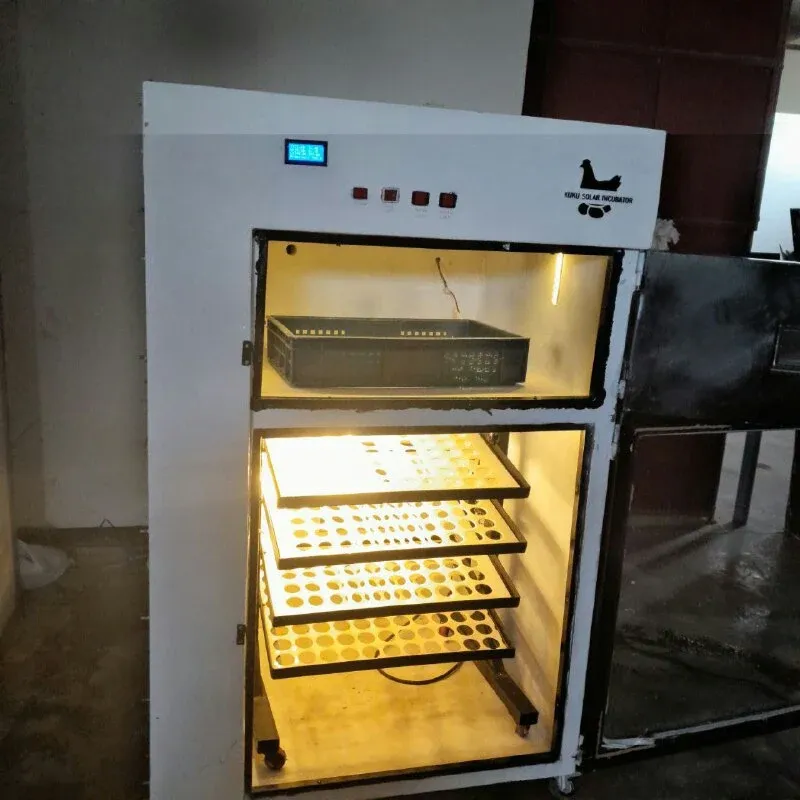Progress for 0 ad
Progress for 1 ad
Progress for 2 ad
Progress for 3 ad


Daniel Metaferiya
Addis Ababa, Ethiopia

Most Ethiopians are accustomed to a morning atmosphere that includes a crowing rooster announcing the break of dawn. With most rural households raising a few chickens to meet their demand for eggs, poultry farming has largely remained a small-scale family operation. However, the tide has begun to turn in recent years amid a sharp rise in demand from cities.
A trio of young female engineering students from Addis Ababa Science & Technology University took note of this evolving trend and decided to offer a lending hand. Under the name Machinova (a blend of machine and innovation), the group of friends set out to establish a company that locally produces agricultural machinery.
Their first target was the poultry sector, where they aimed to manufacture egg incubators domestically. They recognized the potential to significantly reduce costs in the poultry industry by replacing imported incubators with more efficient local alternatives. Hamere Gashaw, co-founder and CEO states the price of a newly imported incubator requires both hefty investments and skilled manpower to operate.
“The older ones lead to lower hatching rates,” Hamere, told Shega.
Machinova’s locally manufactured hybrid incubators have the capacity to hold up to 500 eggs at a time and can detect fertile pieces by the fifth day. It utilizes either solar or electric energy sources as part of the company’s sustainable industry goals.
The ambitious CEO pointed out how the older generation of incubators suffered from fluctuating CO2 levels and inconsistent temperatures due to constant human interference. Hamere proudly referred to the automatic feature of Machinova’s incubator which maintains constant temperature with no human interference necessary.
Read more- AgriTech Startup Armada is Building a Marketplace for Farmers to Get Mechanized Services
Following an 18-day stay in the incubator, the eggs are transferred to a controlled separate room for hatching.
“Humidity and carbon dioxide are regulated automatically as well,” Hamere says.
A continuous supply of chickens can be maintained by leveraging the two partitioned incubators which can take up either 120 or 500 eggs. A candling system within the incubator that has installed lights flashes black every time an egg with chicks is identified.
“Our mothers had to pick up an egg and point to the sun,” Hamere says. “Those days are long gone.”
Machinova’s incubator also records data constantly with notifications sent to the owners of significant updates.
Hamere’s two partners (Martha Samuel and Kebron Gizachew) also have prior experience in coming up with a coffee roaster machine back in college which helped in coming up with the incubator’s design.
The CEO indicated that their incubator costs 20,000 birr less than options in the market with further reductions in price expected as they settle more comfortably at their local plant. The enterprise is currently outsourcing a part of the production process to third parties.

Despite Ethiopia having the largest livestock population in Africa which includes 45 million chickens, backyard production of eggs accounts for nearly 96pc of the domestic supply. The sector’s stagnant growth dominated by small-scale farmers is attributed by experts to low input and underdeveloped technology.
Macinova’s CEO was inspired by early childhood experiences of observing her grandmother raising backyard chickens diligently with little to show for it.
“I always felt like I had to do something,” Hamere says.
The founders’ innovative efforts recently received a $10,000 backing as Machinova scooped up a grant from the Ayute Challenge organized by Heifer Ethiopia.
A series of nutritional initiatives by the Ethiopian government including the Lemat Tirufat project under Prime Minister Abiy Ahmed(PhD) look to increase poultry production. Companies like Machinova which offer innovative solutions in this ecosystem can play a crucial role in the growth.